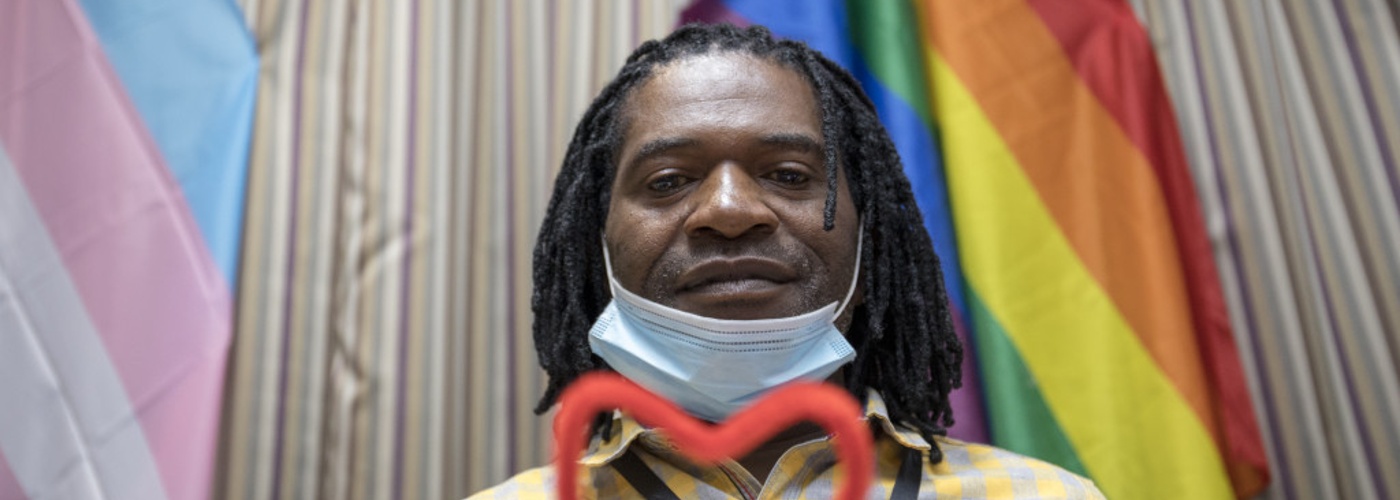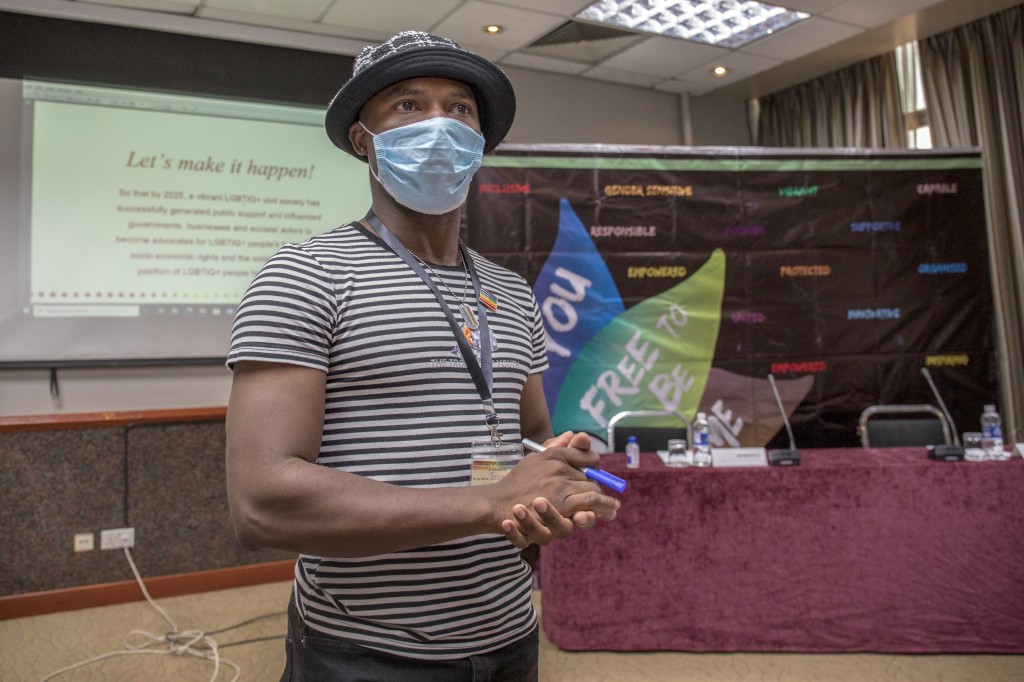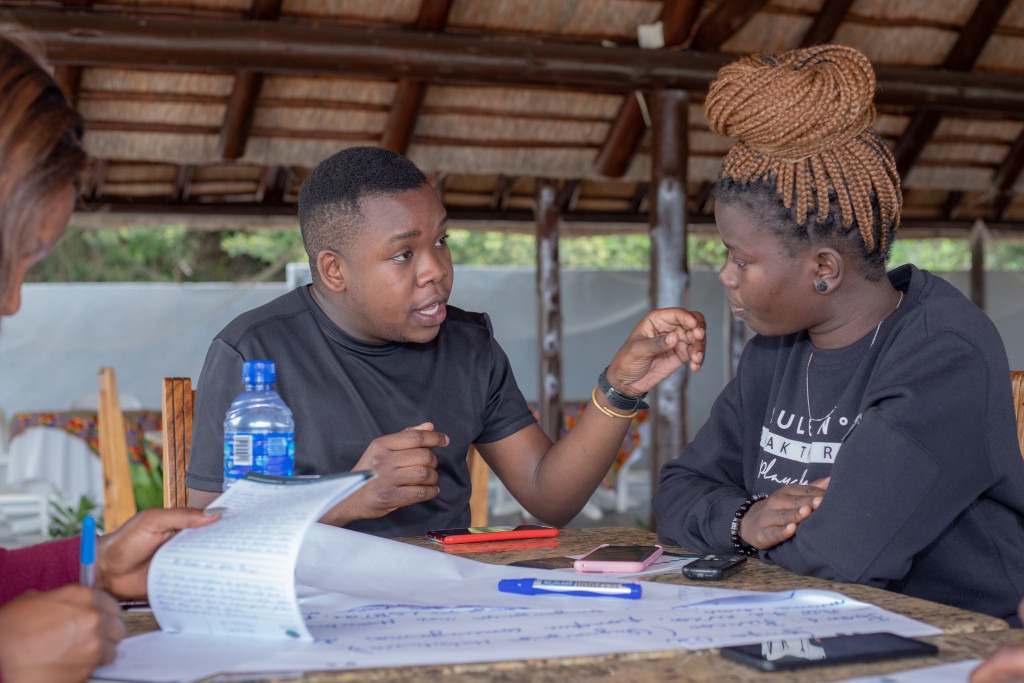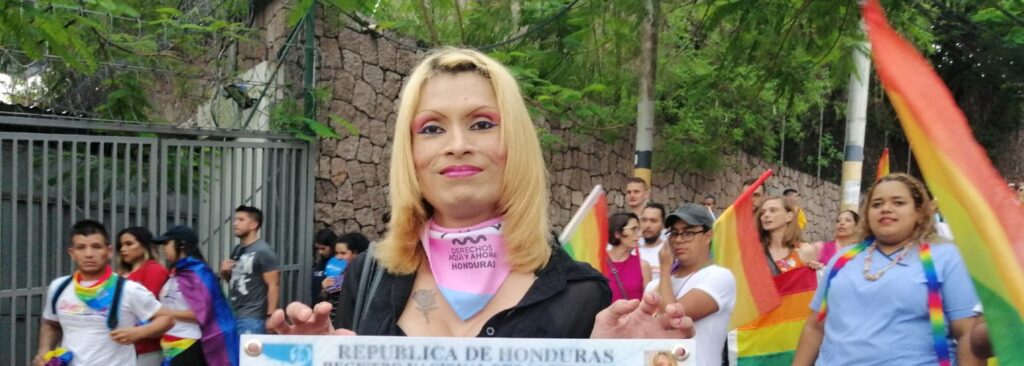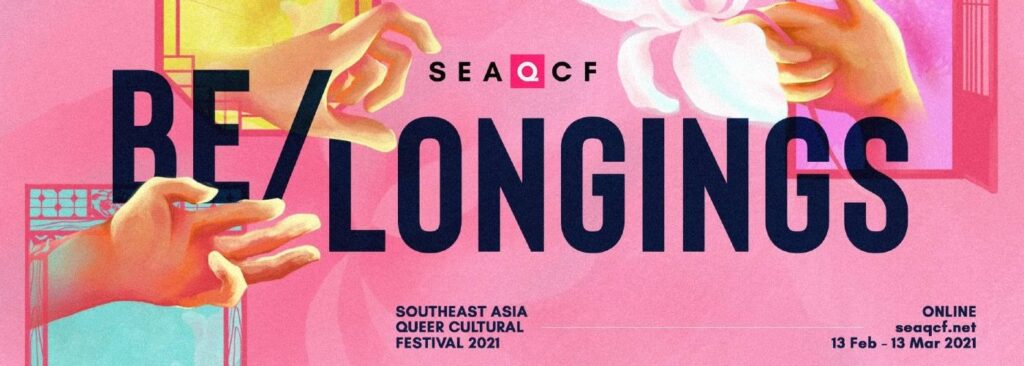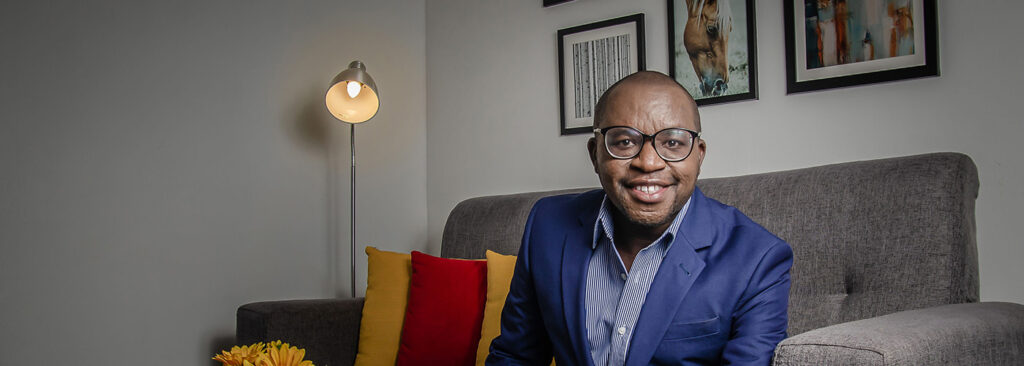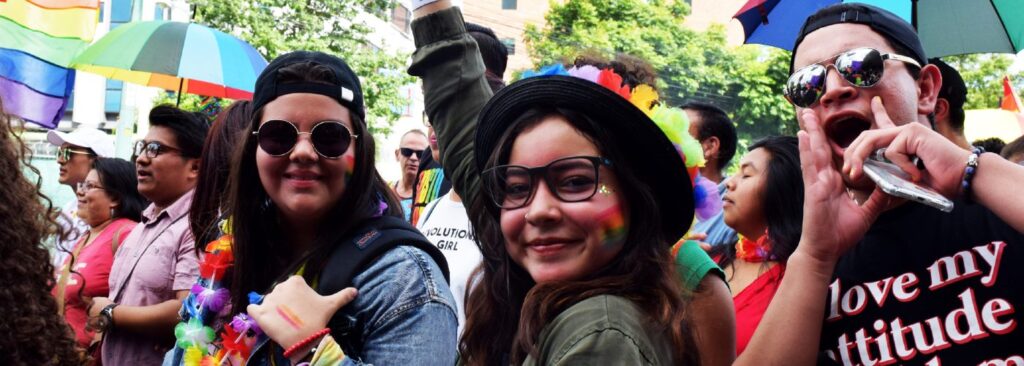Local ownership has always been in Hivos’ DNA; it’s also one of our key strategies to achieve real and lasting change. One of our programs that truly puts LGBTIQ+ people and their organizations in the driving seat is Free to be Me. At the end of 2021, representatives of the program’s rightsholder groups held a series of workshops to set the priorities for 2022.
Free to be Me builds and maintains movements of self-confident and diverse LGBTIQ+ organizations and activists who advocate for their human and socioeconomic rights. Hivos and our consortium partners ILGA World and Positive Vibes have developed an overarching Theory of Change (ToC) that illustrates how we think change will come about as a result of the program.
What makes the program unique is that it is up to the local communities themselves to contextualize the Theory of Change in their countries. In November, LGBTIQ+ organizations and activists representing all parts of the LGBTIQ+ rainbow came together in Namibia, Mozambique and Zimbabwe to define their contexts, identify the most pressing issues, reflect on what is already being done, and agree on what they would like to do with grants given through Free to be Me.
Priorities
Free to be Me is not going to create new organizations, but will support those already there. Many of the countries where Free to be Me operates already have a longstanding LGBTIQ+ movement on which they can build. During the workshops, Musa Sibindi, Executive Director of the Sexual Rights Centre Zimbabwe, explained: “The Free to be Me program is a continuation and extension of the work which is already ongoing within the movement championed by the different organizations.”
Amongst the most pressing issues for the LGBTIQ+ communities that emerged from all three countries were mental health and wellbeing, as well as safety and security. Action points therefore include working towards positive media depiction of LGBTIQ+ people, starting partnerships with mental health facilities and practitioners so they can provide support, and working on the decriminalization of punitive laws targeting the LGBTIQ+ community.
Meet Teddy, Madam Jholerina and Zack
The workshops were hosted by local Community of Action (CoA) facilitators who coordinate the program’s activities in their respective countries. In Zimbabwe, Teddy Munyimani (he/she/they) is the facilitator. One of the reasons why Teddy joined the program was its approach to the Theory of Change: “It puts LGBTIQ+ people at the core and in the driver’s seat for their agenda. It is a true reflection of inclusion.”
In Namibia, Madam Jholerina Timbo (she/they) is the CoA facilitator. She has been a longstanding activist for trans rights in Namibia and has therefore received the honorific title of Madam from the community in Namibia.
Video by: Linda Reanate Magano Bauman
In Mozambique, Zack Machacha (he/they) combines his charisma, friendliness and extrovert nature with his professionalism to act as facilitator. “What attracted me the most about this program is the clever way it was designed,” he explains. “Free to be Me brings a different and unique approach in its conception. It embraces the different regions under the same purpose and brings the theory of change that will help structure all work procedures at the level of each country or region.”
Free to be Me
Free to be Me is a five-year program (2021-2025), funded by the Dutch Ministry of Foreign Affairs. Consortium partners are Positive Vibes, ILGA World, and Hivos is the lead party. Global Interfaith Network (GIN), Workplace Pride and Sogicampaigns are our technical partners.

